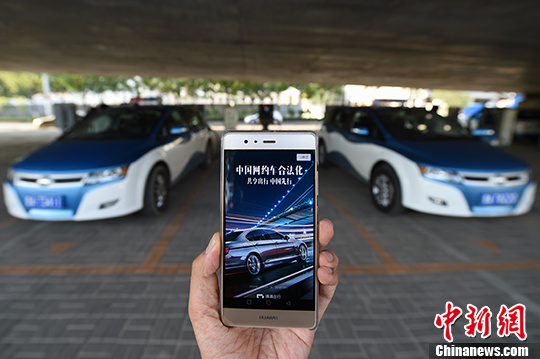China News Service, February 9. Liu Xiaoming, Vice Minister of Transportation, said today that 200 cities have formulated policies suitable for the city’s online car-hailing landing, and 66 cities have widely solicited opinions and will introduce relevant policies in a timely manner. The third-party evaluation overall believes that the implementation of the policy has achieved the expected effect and the overall progress is smooth. It has gradually standardized the development of online car-hailing, promoted and begun to explore the reform of cruise cars, and the "difficulty of hailing a car" has been initially alleviated.

The State Council Information Office held a regular briefing on the State Council’s policies today. A reporter asked that last year ** the regulation of online car-hailing became the focus of ****. Some people believe that the threshold for landing policies issued by some cities is too high, too many restrictions, and even administrative monopoly problems. Some people suggest that the threshold for online car-hailing access should be appropriately lowered. What do you think?
In this regard, Liu Xiaoming said that all along, NPC deputies and CPPCC members have been very concerned about and supported the taxi reform and the healthy development of online car-hailing. During the process of formulating and issuing two reform documents in 2016, many NPC deputies and CPPCC members actively participated in this work and contributed their wisdom, which made these two documents balance the interests of all walks of life, encourage innovation, standardize development, and keep the bottom line. These two documents were issued relatively smoothly and were also recognized by the society. The issuance of the documents is not the end of the reform work, but the beginning.
In 2017, 26 delegates put forward 14 suggestions and proposals on how to standardize, how to reform, how to implement, and how to better coordinate the development of taxis and urban transportation.
He introduced that from the overall perspective of the implementation of the policy, all localities have formulated policies based on local economic and social development, population size, resource endowments, and urban traffic conditions. So far, 200 cities have formulated policies suitable for their cities. 66 cities have widely solicited opinions and are formulating relevant policies in a timely manner in accordance with procedures and according to their own needs.
He said that, on the whole, the opinions of these 200 cities are based on local conditions, some are wider and some are stricter, but overall they are within the framework of the two policy documents of the State Council and the seven departments. The Ministry of Transport also encourages, supports and respects all localities to achieve the greatest common divisor of reform under the general ideas and basic principles of the two documents, combined with local realities, through full demonstration and absorption of opinions from all parties in the society, and through legal procedures, promote reform according to the city’s policies. "Only you know if the shoes fit or not." Reform is a gradual process. It is hoped that cities will further track and improve during the implementation process to better meet the travel needs of the people.
He pointed out that from the effect of implementation, the market response is still very positive, Internet companies, traditional taxi companies, car companies, leasing companies and other enterprises are applying to enter this market. In addition to the original Didi, Shouqi car-hailing, Shenzhou leasing, there are a number of new enterprises, such as Meituan, Ctrip, Cao Cao, etc. have also accelerated the layout of the online car-hailing market. So far, more than 50 platform companies have been licensed in different cities. According to the statistics at the end of 2017, more than 230,000 online car-hailing driver licenses have been issued in various places, and more than 140,000 vehicle transportation licenses have been issued. The development is still relatively good.
When the policy was introduced one year ago, the Ministry of Transport released a third-party evaluation report in August last year. The third-party evaluation generally believed that the implementation of the policy had achieved the expected results and the overall progress was smooth. It gradually standardized the development of online car-hailing, promoted and began to explore the reform of cruise cars, and the "difficulty of hailing a taxi" was initially alleviated. At the same time, the report also pointed out that because some cities are still in the transition stage, the reform results have not yet been fully realized.
He further pointed out that the taxi reform is indeed a systematic and complex project. During the reform process, new and old problems are superimposed and old and new contradictions are intertwined. From the perspective of the reform effect, there is still a gap between the hope of the public, the travel needs of the masses, and the reform goals. Especially the two numbers 230,000 and 140,000, compared with traditional cruise cars, there is still a relatively large gap. The Ministry of Transport will increase the promotion of compliance vehicle compliance personnel in the future and strengthen the guidance of urban reform. The Ministry of Transport will continue to adhere to the people-centered development concept, continuously optimize and improve policies and measures, and carry out the deepening reform of taxis to the end.